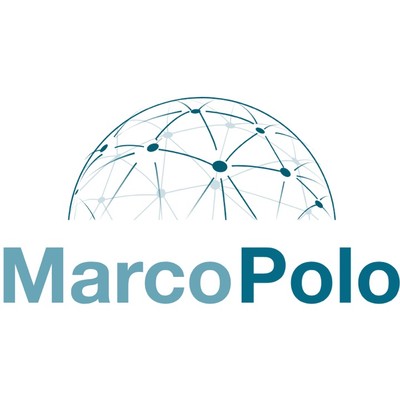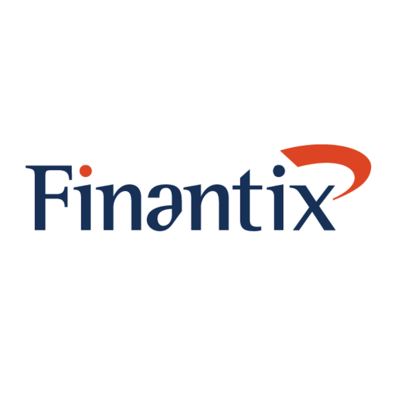Published
- 09:00 am

Asia-Pacific is home to almost half of the world’s ATMs, and within this vast region, some countries continue to witness impressive growth, whilst others have started to shrink
Asia-Pacific’s longest established ATM markets have been contracting
Having grown exponentially for a number of years, RBR’s Global ATM Market and Forecasts to 2024 reveals that the number of ATMs in China shrank for the second year running in 2018, with the removal of 50,000 machines. While China’s decline is by far the most dramatic, it is not the only market contracting in Asia-Pacific.
The region’s three oldest markets – Japan, Australia and South Korea – were among the earliest ATM adopters in the world, first installing ATMs between the late 1960s and mid-1970s. They have also often been at the forefront of innovation, with the world’s first automated deposit ATM deployed in Japan as far back as 1982. In all three countries, however, the number of ATMs fell in 2018 as banks rationalised their fleets in response to cost pressures and diminishing demand for cash.
ATM market growth in Asia-Pacific by country, 2018
Source: Global ATM Market and Forecasts to 2024 (RBR)
ATM numbers continue to rise in the majority of countries
Elsewhere in Asia-Pacific, strong year-on-year growth continues, often resulting from government-backed financial inclusion initiatives. The majority of markets saw ATM numbers rise in 2018, and despite the falls highlighted above, the overall decline in the region was relatively small.
In Bangladesh, where ATM deployment did not begin until 2002, the market continues to be driven by new installations in rural areas aimed at newly-banked segments of the population. Vietnam, the region’s second youngest market, has seen large increases for a number of years thanks to financial inclusion initiatives and increased bank deployment. Meanwhile, expansion in Pakistan resulted from regulations that require all bank branches to be equipped with an ATM, as part of wider efforts to expand access to banking services in the country.
Rowan Berridge, who led RBR’s Global ATM Market and Forecasts to 2024 research, remarked: “While headlines naturally focus on the declines seen in markets such as China, it is important to note that many countries in Asia-Pacific are still experiencing rapid growth in ATM numbers, bringing banking services to the previously underbanked, particularly in rural areas of developing markets. This region is home to many innovative ATM industry players, and it will be interesting to watch it continue to develop in the coming years”.
Related News
- 04:00 am

Visa Inc. today announced that its Visa B2B Connect network has doubled its reach – from 30 global trade corridors at launch in June 2019, to 62, with the goal to expand to over 100 countries in 2020.
In addition, Infosys, a global leader in next-generation digital services and consulting, is integrating with the Visa B2B Connect network to bring Visa B2B Connect platform access to their participating financial institutions worldwide.
Through this new connection, participating financial institutions worldwide can take advantage of the ability to quickly and securely process corporate cross-border payments globally through Visa B2B Connect.
“Visa B2B Connect is a fast, secure and more efficient network, designed specifically to overcome obstacles in the cross-border corporate payments space,” said Alan Koenigsberg, global head, new payment flows, Visa Business Solutions. “We are excited to bring on Infosys and expand Visa B2B Connect to new geographies – all in a joint effort accelerate innovation and increase efficiencies for financial institutions and their corporate clients.”
In addition to Visa’s new collaboration with Infosys, participating clients can also connect to Visa B2B Connect through Bottomline and FIS, Visa’s previously-announced hub partners.
Participating clients can now connect to Visa B2B Connect via Bottomline’s Universal Aggregator. Joint customers can take advantage of Bottomline’s modern API connectivity to effortlessly access Visa B2B Connect, and begin transacting through their existing Bottomline connections, minimizing technology adjustments.
According to a recent survey commissioned by Visa, almost six-in-ten respondents (59%) expect overall revenues from cross-border payments to increase in the next five years as a result of faster payments. Nearly a quarter of respondents (24%) expect to see faster payments drive up revenues by as much as 25%.
Visa B2B Connect helps remove friction and time spent on cross-border corporate payments by facilitating transactions from the bank of origin directly to the beneficiary bank. The network drastically increases visibility into the transaction flow, giving buyers and suppliers an opportunity to track the status of payments from the origin bank to the destination bank in near real time.
Visa B2B Connect can also significantly reduce the time to settle funds – from potentially weeks to one to two days. It gives corporate financial institutions and their customers a clear view of fees associated with a payment, helping companies better manage their cash flow. In order to begin transacting through Visa B2B Connect, participating financial institutions around the world can connect in two ways – directly to the network or through Visa’s hub partners.
Visa B2B Connect’s unique digital identity feature tokenizes an organization’s sensitive business information, such as banking details and account numbers, giving them a unique identifier that can be used to facilitate transactions on the network. Visa B2B Connect’s digital identity feature will transform the way information is exchanged in business-to-business cross-border transactions.
“Differentiated capabilities of Visa B2B Connect and our work with early adopters is truly set to transform the speed, security and profitability for the entire ecosystem,” added Koenigsberg.
Rob Eberle, CEO and president of Bottomline said, “We are delighted to be partnering with Visa on such an important initiative. The powerful combination of our technologies and continued commitment and investment in cross-border B2B payments innovation will help ensure banks can thrive and grow in the open and faster payments world.”
“Infosys is looking forward to partnering with Visa to create new payment flows for Commercial Payments,” said Narayan Sivaram (Nans), VP, global head, cards & payments, Infosys. “We believe that through this engagement we will be able to jointly reach a large number of banks and support their cross border needs.”
Related News
- 04:00 am

Traditional surveillance technology is adept at detecting obvious market abuse, but it doesn’t commonly address the “unknowns”. That’s why regulators around the globe are adopting next generation surveillance technology in growing numbers, and advising Financial Services Organizations (FSOs) to do the same. To meet this demand, NICE Actimize, a NICE (Nasdaq: NICE) business and the leader in Autonomous Financial Crime Management, is introducing SURVEIL-X, the industry’s first AI-powered, cloud-native, true holistic trade-related surveillance solution that detects all forms of risky behavior to ensure compliance with key global regulations, including MIFID II, Dodd-Frank, Regulation Best Interest and others, while also protecting FSOs from previously undetectable risks that could result in fines and reputational damage.
NICE Actimize’s SURVEIL-X revolutionizes surveillance by providing complete surveillance coverage with both AI-powered and traditional expert rule-based analytics, and advanced visualization tools, all on a cloud-native platform that drives down total cost of ownership. Utilizing the latest AI technologies, SURVEIL-X uses a fundamentally different, advanced surveillance methodology, enabling for far greater and more comprehensive risk detection. Taking a situational approach to surveillance, SURVEIL-X intelligently discovers all facets around market manipulation actions, pieces them together without manual intervention and delivers a single alert to compliance for review to increase the probability of finding true risk and delivering clear understanding of the risk discovered.
SURVEIL-X offers unparalleled risk coverage for buy- and sell-side firms, insurance companies, crypto exchanges, regulators and more, by enabling accurate detection and rapid, thorough investigation of market abuse, inappropriate sales practices, conduct risk and otherwise undetectable compliance risks to insulate firms from fines and reputational damage.
Chris Wooten, Executive Vice President, NICE, stated, “For financial services organizations, surveillance capabilities have become a compliance necessity for detecting known regulatory risks. The only problem is that risk is a moving target, and the things you don’t know or uncover can also hurt your firm. With SURVEIL-X’s complete surveillance coverage, AI-powered analytics and anomaly detection, and its other next-generation surveillance capabilities, FSOs can move out ahead of the curve and insulate themselves from reputational damage and fines.”
Complete Surveillance Coverage
Where much of the current surveillance technology is limited by its ability to generate an alert using only one data set (i.e. trades or eCommunications or voice communications), SURVEIL-X looks for connected actions across sources and generates a single alert with all the applicable data for compliance to review. This expands the surveillance detection capabilities far beyond what is typically available today.
SURVEIL-X holistic surveillance removes data silos to provide comprehensive surveillance coverage for trade-related regulatory needs. It can connect to, ingest and analyze data from 150+ real-time data sources, including traditional market information, behavioral data derived from analytics, and various communication platforms. By analyzing surveillance data together in one platform, SURVEIL-X is redefining compliance processes to help FSOs cut through the clutter and identify true risks.
X-Sight Cloud Platform-as-a-Service
As a cloud-native solution powered by X-Sight, SURVEIL-X’s future-proof platform enables FSOs to benefit from faster deployment, reduced infrastructure, operational, training and maintenance costs, hassle free upgrades, seamless scalability, and improved resiliency and security – so they can stay a step ahead of new regulations. FSOs can also take advantage of the X-Sight Marketplace, which lowers integration barriers and shortens time-to-use for dozens of integrated third-party solutions.
AI-Powered Analytics
Traditional surveillance methods that use lexicon, rules and threshold breaches may work for detecting obvious issues but are limiting. NICE Actimize SURVEIL-X takes detection to a whole new level by leveraging AI-powered analytics, including machine learning, anomaly detection, smart classification, advanced speech and behavioral analytics, and Natural Language Understanding to reduce false positives by up to 90 percent. SURVEIL-X’s AI-powered analytics go far beyond looking at single events, formulas and simple thresholds, to analyze and correlate your communications, trade and other data sources, so you can identify true risks and understand the intent behind actions taken.
With traditional prescriptive detection methods that focus on known risks, regulated employees can easily fly below the radar or change their behavior to avert detection. SURVEIL-X’s anomaly detection uses unsupervised machine learning to bring attention to previously undetectable suspicious behaviors.
Centralized Case Management with Story Visualization
SURVEIL-X’s data-rich, visual alerting capabilities within NICE Actimize’s award-winning ActOne case manager provide a comprehensive graphical representation of any risk that is detected. This may include important details on why an alert was created, leveraging risk factors across communications, trades and more, demonstrating the content and context of the event as well as the conclusion as to why risk is inherent in the alert. All of this is shown within a detailed timeline of events so analysts can receive a detailed understanding of risk, and the full sequence of actions exactly as they happened.
NICE Actimize unveiled its new SURVEIL-X solution this week at the 1LoD Surveillance 1LoD Surveillance Summit in New York City and at the Albridge Forum in San Diego.
Related News
- 04:00 am

Global cyber and information security experts, ThinkMarble, are today launching a Virtual Data Protection Officer (VDPO) service, to provide UK businesses with access to a highly-skilled team of cyber security and risk mitigation lawyers that can act as their Data Protection Officer (DPO) under the EU General Data Protection Regulation (GDPR). The lawyers will be working alongside ThinkMarble’s multi-disciplinary team of security analysts, incident responders and penetration testers to provide a fully comprehensive and bespoke service to each business that draws on its expertise in UK and EU data protection law.
For public bodies and many private businesses, appointing a DPO is a mandatory requirement under the GDPR, which comes into effect on 25th May 2018. ThinkMarble’s new VDPO service will assist organisations in complying with the new regulation and remove the need to recruit expensive, fulltime, in-house compliance staff.
The new service will offer companies access to a team of data protection legal and risk specialists who will act as trusted advisors, liaise with the ICO and make sure they comply with legal and contractual data security obligations. They will also act as the main contact point for data subjects, such as employees and customers, and help raise awareness and train staff on the importance of data protection. Another important function is to provide regular, comprehensive reports that advise on appropriate data security measures and risk mitigation at board and management level.
Robert Wassall, Data Protection lawyer and Head of Legal Services at ThinkMarble, comments: “The role of the DPO is at the heart of this new legal framework and will be an integral cog in any company’s ability to prove that they are not only compliant with the new Regulation, but also in demonstrating the highest level of accountability should a breach occur. “A DPO should be appointed based on their knowledge and expertise in the field of data protection. They must be independent, credible and show integrity – this is difficult for a current employee, whether they are the Head of IT or at Director level, as this will represent a conflict of interest. Equally, you cannot expect to send an employee on one of the many advertised EU GDPR short courses and expect them to come away as an expert in data protection and law.”
Andy Miles, Founder & CEO at ThinkMarble, adds: “The clock is ticking, and time is rapidly running out for businesses that need help in navigating this perfect storm of Information Security and the GDPR. We are bringing together the combination of experience, knowledge and strategic guidance that will make complying with the new regulations more achievable and remove many of the management and budgetary headaches that company boards are suffering today.
“Over the last 18 months we’ve been helping companies prepare for the 25th May and the launch of our VDPO service allows us to offer a company of any size a full end-to-end service under one roof. With our unique combination of our 24/7 Security Operations Centre team, incident responders, red team and expert data protection lawyers, businesses can be confident that they are prepared for the impending and ongoing regulatory requirements.”
Related News
- 01:00 am

Scalable Capital, Continental Europe’s market leader for digital wealth management, has collaborated with Raisin, Europe’s leading platform for cross-border savings, to offer a new service. Scalable Capital’s customers with a portfolio account at Baader Bank can invest in fixed-term deposits with select European banks as part of a white label solution by Raisin that offers a choice of more than 20 different savings products. The new service can be accessed via Scalable Capital’s website and apps. This complements Scalable Capital’s existing wealth management service with Raisin’s partner banks, whose products in some cases significantly exceed the current average interest rate level. For German consumers, Raisin is best known under the brand WeltSparen.
“We are complementing our product range with products that offer an attractive return without capital market risks. In addition to our automatically managed ETF portfolios for long-term wealth accumulation, our clients can now easily deposit their funds in European fixed-term accounts,” says Florian Prucker, co-founder and co-CEO of Scalable Capital. “We are happy to be working with Raisin. The founding spirit and business model fit together perfectly on both sides. The partnership is ideal for giving our clients access to fixed-term deposits throughout Europe.”
Dr. Tamaz Georgadze, CEO and co-founder of Raisin, adds: “We stand for saving and investing without barriers and want to make the best offers available to consumers, particularly in the current low interest rate environment. This is why we are pursuing integration partnerships, enabling our partners to expand the range of products they offer. Especially considering better risk diversification and flexibility, fixed-term deposits offer Scalable Capital’s customers a high added value – convenient and easy to access, with a smooth, comfortable user experience.”
Customers can benefit from higher interest rate levels
Raisin expands its network of B2B partnerships
On its savings marketplace Raisin offers access to fixed-term deposits throughout Europe. This integration partnership with Scalable Capital represents an expansion of Raisin’s B2B business with corporate partners. Since launch the Fintech has brokered 16 billion Euros from savers to over 80 partner banks across Europe. The Berlin-based company has so far earned an interest income of more than 115 million Euros for investors from over 30 countries.
Easy investment process via Scalable Capital’s website or apps
Access to Raisin’s offering is fully integrated into Scalable Capital’s website and iOS/Android apps. Customers can open the fixed-term deposit accounts free of charge and without paperwork, using their existing Scalable Capital login. The new service starts with a minimum of 500 Euro. However, with some banks the minimum deposit amount may be higher. Interest is automatically credited to the accounts.
Related News
- 03:00 am

Gresham Technologies plc, the leading software and services company that specialises in providing real-time solutions for data integrity and control, banking integration, payments and cash management provides further details of its recent strategic licencing agreement with ANZ for a new and innovative cash management solution.
Gresham and ANZ have partnered to deliver a complex project which has involved collaboration between teams from a number of different areas of the bank working across multiple time zones with Gresham staff in Asia Pacific and at its Innovation Labs in the UK. The agility and specialist fintech skills of the Gresham team, combined with the Bank’s deep understanding of their customer segments, has proved to be invaluable to the innovation process and speedy delivery of the new solution.
Gresham’s new Clareti banking solution is built using a modern microservice architecture and leverages Google’s GKE On-Prem for secure and scalable deployment. The new technologies are the foundation of its next generation of corporate cash management and payments solutions which Gresham intends to market alongside its established Clareti Multi-Bank service.
Highlights of the partnership journey to date include:
· demonstrating benefits that can be realised by effective partnering between large banks and experienced fintechs;
· enabling the Bank to access the latest technologies for rapid creation of customised products to meet corporate and institutional customer requirements;
· demonstrating the value of microservice architectures, APIs and agile ways of working to accelerate new product development processes;
· proving the robustness of Gresham’s Clareti technologies and collaborative development processes.
Ian Manocha, Gresham CEO, commented:
“Customer demand for tangible value from their bank relationships has never been greater. Working with our partner ANZ and using the very latest digital innovation and modern technology, the Gresham team is developing exciting cash management solutions which will deliver benefits to the Bank and to their customers. The product development work is firmly on track and we are delighted with the results we are achieving. ”
Related News
- 02:00 am

Bank of America announces that it is joining the Marco Polo Network, the largest and fastest growing trade finance networks leveraging Corda distributed ledger technology to provide transformative solutions to global trade participants.
Bank of America is a long standing provider of trade and supply chain finance solutions, with offices spanning Asia Pacific, EMEA, Latin America and North America. It is also a leader in digital banking and regularly introduces innovations that leverage the bank’s annual $3bn new technology initiative fund. This year, the bank was named North America’s Best Digital Bank by Euromoney for the second consecutive year.
The Marco Polo Network operates on the first distributed trade finance platform powered by blockchain technology. It offers its members access to innovative risk mitigations solutions such as receivables discounting, payment commitment and payables finance programs. The initiative aims at making trade finance more transparent, smarter and better connected and is championed by new technology providers TradeIX and R3.
Other members of the Marco Polo Network include BNP Paribas, Commerzbank, ING, LBBW, Anglo-Gulf Trade Bank, Standard Chartered Bank, Natixis, Bangkok Bank, SMBC, Danske Bank, NatWest, DNB, OP Financial Group, Alfa-Bank, Bradesco, BayernLB, Helaba, S-Servicepartner, Raiffeisen Bank International, Standard Bank, Credit Agricole and National Bank of Fujairah.
Geoff Brady, Head of Global Trade & Supply Chain Finance in Global Transaction Services at Bank of America: “Joining the Marco Polo Network supports our strategic objective of turning technology advances into trade solutions that address client needs. We look forward to exploring how the new technology can generate greater transparency for our clients throughout the transaction lifecycle, making traditionally paper-based, opaque processes easier and more efficient.”
Daniel Cotti, Managing Director, CoE, Banking & Trade for the Marco Polo Network: “The Marco Polo Network is accelerating its presence in North America and we are very pleased to have one of the largest and most innovative trade finance banks in the world joining the Network,”, He adds, “We look forward to working with Bank of America to address critical market challenges and to expand the Network’s reach and eco-system to a wider audience of Corporate Customers.”
David E. Rutter, CEO at R3: “The Marco Polo Network’s existing roster of banks is further strengthened by welcoming Bank of America – one of the most prominent and innovative players in the financial services space. As the network continues to grow, so too does the growing number of use cases blockchain technology presents in transforming financial markets. Trade finance is one such area that is set to benefit the most from the promise of blockchain and the increased efficiencies it can bring. We hope that Bank of America’s place in the network will encourage more to join us in transforming trade finance through technology.”
Related News
- 06:00 am

Finantix, the leading global provider of trusted technology to the wealth management, insurance and banking industries, has appointed Jérôme Vasamillet to further grow its presence in Switzerland. His appointment follows the recent announcement of Finantix new Tokyo-based team covering sales in Japan and South Korea as well as the hiring of a new Chief Financial Officer and new Global Marketing Director earlier in the year.
Jérôme joins Finantix with deep knowledge of innovative FinTech organisations from his time at several start-ups and two accelerators (including Fusion where he was entrepreneur-in-residence supporting FinTech startups). He also brings direct banking and wealth management experience, having previously been a Senior Investment Counsellor at Deutsche Bank and EFG Asset Management. Jérôme joins the expanding Business Development team dedicated to the Swiss market, working closely with the R&D team and clients to continue to extend Finantix’s core product suite.
Alessandro Tonchia, co-founder and director, Finantix said: “Switzerland is truly a world-class hub for the markets in which we operate, so it made complete sense that this was the next phase of our global expansion plan. Jérôme is an ideal addition to the team, with his hands-on expertise in established wealth management firms and new FinTech start-ups. His front to back office knowledge, as well as his comprehensive language skills needed for Switzerland’s international clientele are a perfect combination and we’re delighted to welcome him to Finantix at this exciting time.”
According to latest industry figures, the wealth of the world’s 500 richest people is up more than $658 billion this year, a rise of almost 14%. While there is an increase in competition by investment firms to attract and retain HNWI’s fortunes, there is also an increased requirement to offer cross-border and more sophisticated management services. With this in mind, a recent report has also highlighted how Switzerland is leading cross-border wealth management and how its international focus and multilingualism has facilitated the growth of this sector in the region.
With the backing of Motive Partners, Finantix is targeting major expansion across Europe, Asia Pacific and North America. Its focus is on building brand awareness and increasing the company’s profile in the financial services and wealth management communities for its digital acceleration, sales productivity and advice enabling software products.
Related News
- 06:00 am

Nordea Bank Abp’s Shareholders’ Nomination Board was established with the task of presenting to the Annual General Meeting proposals concerning election of members of the Board of Directors, the chair of the Board of Directors and the remuneration to the board members and auditor.
The four largest shareholders in terms of votes who wish to participate in the nomination board are entitled to appoint one member each. In addition, the chair of the Board of Directors participates in the nomination board.
The members of the Nomination Board are:
⁻ Kari Stadigh, Group CEO and President of the Sampo Group
⁻ Lars Ingemann Nielsen, Executive Vice President and CFO, Nordea-fonden
⁻ Mikael Wiberg, Portfolio Manager, Alecta
⁻ Christer Gardell, Managing Partner and co-founder, Cevian Capital AB
⁻ Torbjörn Magnusson, Chair of the Board of Directors of Nordea Bank Abp
The Nomination Board has now met and Kari Stadigh, Group CEO and President of the Sampo Group, has been appointed chairman of the Nomination Board.
The Annual General Meeting will be held on Wednesday 25 March 2020 in Helsinki.
Related News
- 09:00 am

The number of real-time payment systems in use around the world has increased 35 percent over the past year and nearly fourfold since 2014, according to new research released today by FIS™ (NYSE: FIS), a global leader in financial services technology.
In its sixth annual Flavors of Fast report, FIS identified 54 countries with active real-time payment programs, up from 40 in 2018 and nearly four times as many named in the inaugural 2014 study. Leading contributors to this increase were new programs launched in Asia and the expansion of Europe’s SEPA Instant Credit Transfer (SCT Inst) scheme.
The report rated real-time payments programs around the world on a scale of 1-5 (5 being the highest), as part of its “Faster Payments Innovation Index.” Programs were rated on innovative features, fund availability and market application. India received the only 5+ rating and remains the global leader in real-time payments usage. The country saw a 10-fold increase in value and an eight-fold increase in transaction volumes through its national immediate payment service (IMPS) over the last year.
Six countries (Australia, Denmark, Poland, Romania, Singapore and Sweden) received a 4+ rating for their real-time payments systems. The U.S. and U.K. were among 31 other countries or regions with a 4 rating for their faster payments schemes.
“Consumers and businesses globally are demanding faster payments, and more countries and financial institutions are hearing the call and taking action,” said Raja Gopalakrishnan, EVP, International Banking and Payments at FIS. “While this is good news for the marketplace, we are only at the beginning of this revolution and much more investment is needed to make the global transition to real-time payments.”
The FIS research found that growing use of chat-based services, retail apps, instant loans and open APIs, as well as the migration toward the ISO 20022 global payments standard, are key factors that are driving the increased adoption of real-time payments around the world.
“Real-time payments are expanding across the globe at an unprecedented pace,” said Ron Van Wezel, senior analyst, Aite Group. “Financial institutions that have a strategy in place for real-time payments will be ahead of the game.”









